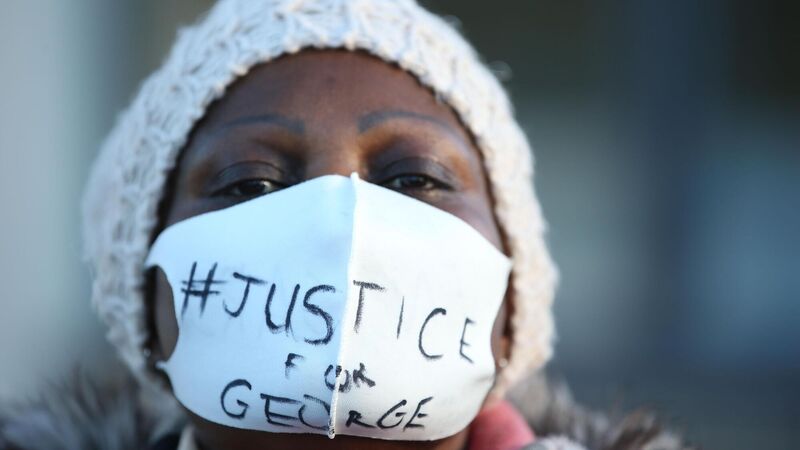Irish Examiner view: Fury at satire focussed on wrong target

A protester outside Blanchardstown Garda station after George Nkencho was fatally shot by gardai at Manorfields Drive in Clonee, West Dublin. Social media was alive with the false claim Nkencho had 32 convictions for violent crime. Picture: Stephen Collins / Collins Photos Dublin.













